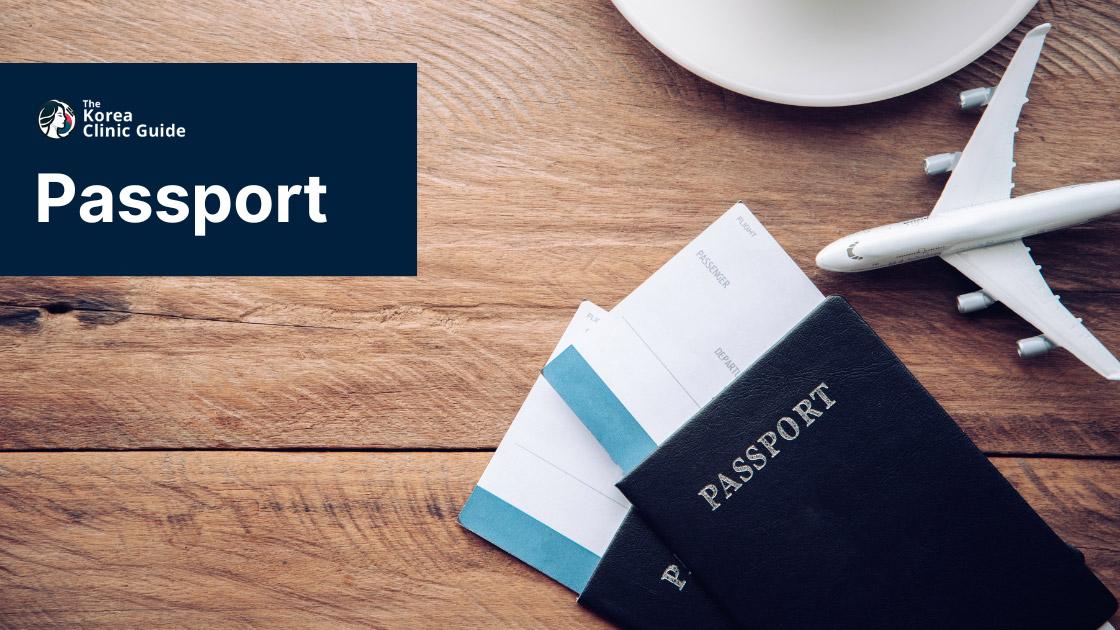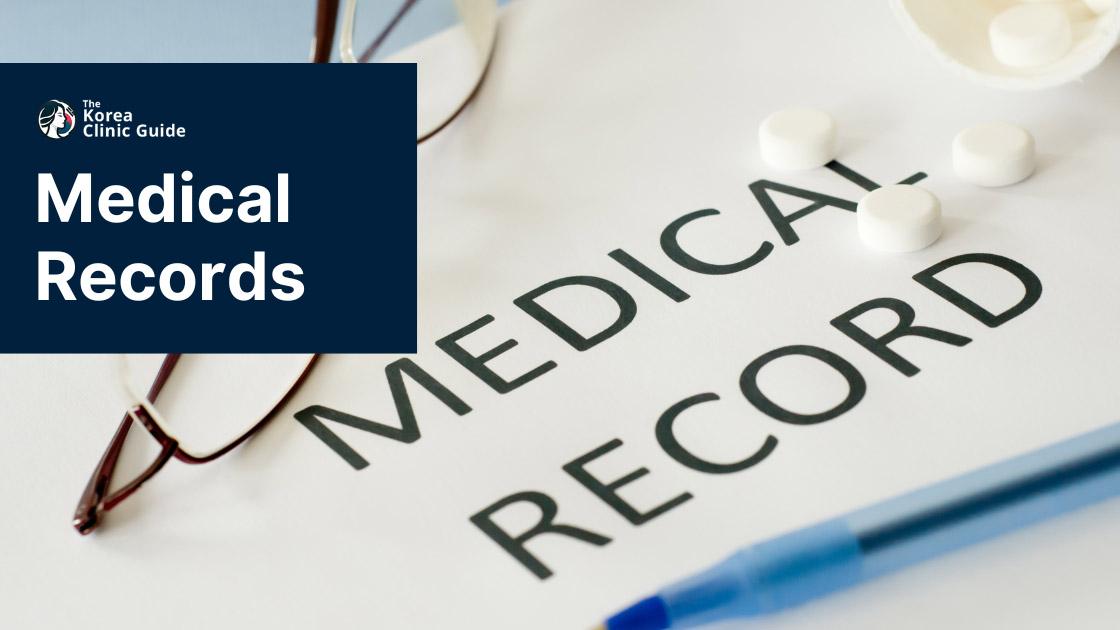Medical Tourism Blog
5‑Document Checklist for Medical Tourism in Korea (2025 Guide)

Table of contents
Considering treatment in Korea? Everything you need to know e.g. — how to avoid scams, visas, interpreters, recovery tips — in our Medical Tourism Master Guide. Plan with confidence in minutes, not weeks!
For international patients planning treatment in Korea. Print or save this page and tick items off as you go.
Set yourself up for a smooth trip by confirming the essentials early. Gather and duplicate your medical records (labs, imaging, prescriptions, allergies) and share any conditions or medications with your clinic in advance. Check that your passport is valid for 6+ months, confirm whether a tourist visa (C-3/visa-free) is enough or if you need a medical tourism visa (C-3-3/G-1-10), and purchase travel insurance with medical coverage for unexpected events. Keep printed and digital copies of everything (itinerary, clinic contacts, insurance docs) so you’re ready from check-in to check-up.
Compact list:
- Passport
- Medical records
- Visa/K-ETA (or medical-tourism visa)
- Travel insurance (with medical coverage)
- Digital copies (itinerary, clinic contacts, insurance docs)
5 - Document Checklist (what to prepare and why)
1) Passport

Why it matters: Airlines and immigration typically require a passport valid for 6+ months past your intended departure from Korea.
Bring/prepare:
- Passport valid 6+ months from your return date
- Two spare passport photos (some clinics ask for them)
- A paper photocopy of your bio page
- A secure digital scan (PDF/JPG) stored offline and in the cloud
Tips: If your passport is close to expiry, renew before booking flights. Double‑check the exact name order you’ll use on clinic paperwork and prescriptions.
2) Medical Records

Why it matters: Your doctor needs a complete picture to tailor a safe plan (and to avoid delays/cancellations).
What medical documents should I bring?
Bring copies of all relevant medical records—lab tests, imaging, prescriptions, allergies—preferably organized and duplicated in separate suitcases in case of loss
Usually, clinics ask for all the required documents in advance; otherwise, they will conduct the necessary medical checkup before the procedure. If you have any medical conditions, history of illness, allergies, or medications you are currently taking, you must share them with the clinic where you plan to have your procedure. If you don’t inform them in advance, your surgical plans may change.
Before You Fly: What to Send & Ask in Your Online Consultation
Bring/prepare:
- Lab results (CBC, coagulation, etc., if recent)
- Imaging relevant to your procedure (e.g., nasal CT for rhinoplasty)
- Medication list (with dosages) and allergy list
- Prior operative notes or clinic summaries (if any)
- Chronic conditions summary (e.g., hypertension, diabetes)
Format & organization:
- Combine into a single PDF labeled Name_Records_YYYYMMDD.pdf.
- Duplicate into two separate bags and keep a cloud copy.
- Email a copy to the clinic in advance; they’ll advise if extra tests are needed on arrival.
Important: If you take anticoagulants (e.g., aspirin, warfarin, clopidogrel, apixaban, rivaroxaban), isotretinoin, or other high‑impact meds—or if you smoke/vape nicotine—disclose this early. Your surgical plan, timing, or eligibility may change.
3) Visa (and travel documents)

Why it matters: Entry rules depend on your nationality and the purpose/length of stay.
Under Korean medical tourism regulations, short‑term medical services such as plastic surgery, dermatology, dentistry, and health check‑ups can often be received with a regular tourist visa (C‑3 short‑term visit) or visa‑free/K‑ETAentry, if your nationality allows.
Checklist:
- Confirm if visa‑free/K‑ETA or C‑3 (tourist) covers your visit duration and activities
- If required, apply for a medical‑tourism visa (e.g., C‑3‑3 short‑term / G‑1‑10 for treatment)
- Keep printed & digital copies of your itinerary, accommodation, and clinic appointment letters
If you want to learn whether you need a visa for medical tourism—and how to apply—read our complete guide.
Tip: Rules change—verify with official immigration sources for your nationality before you book. You can keep private research notes (e.g., your Visas doc) and cross‑check against official guidance.
4) Travel Insurance (with medical coverage)

Why it matters: In Korea, cosmetic/aesthetic procedures are not covered by national health insurance, even for citizens. You’ll pay out of pocket for elective care, and unexpected events can be costly.
Get coverage for:
- Trip disruptions (cancellations/delays)
- Lost/delayed baggage
- Accidents or sudden illness unrelated to your planned procedure
- Emergency hospitalization or medical evacuation
What to confirm in the policy:
- Coverage limits (medical, evacuation, trip interruption)
- Pre‑existing condition rules and disclosure
- Exclusions related to elective surgery and post‑op care
- How to file claims from Korea; required documents (invoices, itemized receipts)
Bring/prepare:
- Policy PDF and emergency phone numbers
- A note in your phone with your policy number and claim steps
5) Digital Copies of Everything

Why it matters: If a bag is lost or a clinic needs a document instantly, digital access saves the day.
Create a secure bundle:
- Passport scan (bio page)
- Visa/K‑ETA approval page or confirmation
- Flight & hotel confirmations
- Clinic quote, deposit receipt, refund/cancellation policy (PDF)
- Medical records PDF
- Insurance policy PDF
- Clinic contacts (phone, WhatsApp, email) and your emergency contacts
Storage tips:
- Save to a cloud drive + offline copy on your phone.
- Use file names that are searchable and dated.
- Enable device screen‑lock and consider a privacy vault for sensitive files.
One‑page printable checklist
- Passport (6+ months), spare photos, paper copy, digital scan
- Medical records PDF (labs, imaging, meds, allergies), duplicates
- Visa/K‑ETA (if required), itinerary & appointment letters
- Travel insurance with medical/evac; policy PDF & claim steps
- Digital bundle (passport/visa, travel bookings, clinic docs, insurance, contacts) stored cloud + offline
Pro tips
- Email your records and questions to the clinic before buying flights; ask what additional tests they need on arrival.
- Use consistent name/spelling across passport, tickets, and clinic documents.
- Keep a small paper folder on travel days; everything else lives in your secure digital bundle.
Final word
Good preparation = less stress and better care. If anything is unclear, ask your clinic in writing for what they need and how they want it formatted. Then bring a backup of everything—both paper and digital.







